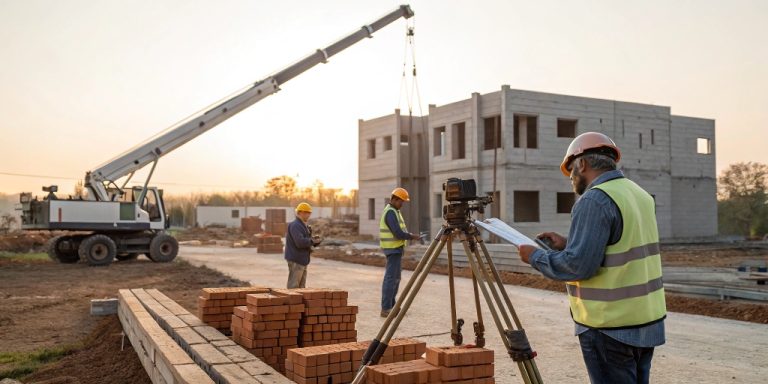Key Takeaways
- Obtain a more profound insight into different facets of travel safety across various environments and scenarios.
- Discover proactive strategies for minimizing risks at every journey stage, from planning to execution.
- Learn practical tips that enhance your travel experience and enable responsible adventuring.
- Explore further resources for insights and travel advice tailored to specific destinations and circumstances.
Traveling expands horizons, providing a physical journey and a profoundly enriching experience that touches upon cultural insights, personal growth, and global awareness. As travel becomes more accessible thanks to advancements in technology and transportation, the globe feels smaller, yet the world remains vast and filled with diverse opportunities for exploration. Amidst this backdrop, ensuring personal safety becomes paramount, enabling travelers to confidently and securely engage with unfamiliar surroundings. As the allure of destinations like Cabo San Lucas beckons adventurers, understanding how to navigate various locales safely is more crucial than ever. So, is Cabo San Lucas safe for tourists in 2024?
This comprehensive guide aims to arm travelers with essential knowledge and practical advice. By seamlessly weaving safety considerations into travel planning, you can welcome the thrill of discovery while minimizing risks. Explore each step of your travel experience, knowing you are well-prepared for anticipated and unexpected challenges.
Introduction to Travel Safety
Today’s increasingly interconnected world fosters a relentless urge to explore. The seductive melody of travel invites adventurers to cross borders, engage with unfamiliar cultures, and indulge in new cuisines. However, each journey comes with its respective challenges and potential pitfalls. Safety is a multi-layered construct that involves everything from researching nuanced cultural norms to understanding the legal landscape of your destination. The unpredictability of travel environments necessitates a prepared mindset. Whether venturing into complex urban landscapes or remote natural reserves, embedding safety systematically into your travel plans ensures a safe blend of comfort and adventure. This guide seeks to uncover the complexities of travel safety, offering insights into how to prepare thoughtfully and stay vigilant.
Planning Your Trip with Safety in Mind
The foundation of a successful trip is laid in the meticulous details of the planning stage. Thorough preparation allows travelers to anticipate potential challenges and cushion against unexpected disruptions. Embarking on this journey begins with comprehensive research. Understanding the current safety status of your intended destination is crucial. Utilize travel advisories to inform yourself about the socio-political landscape. Travel advisories offer a window into potential security concerns, including civil unrest or regions prone to natural disasters. Aside from governmental advisories, personal reviews and insights from recent travelers can provide real-time operational intelligence. As you outline your travel plans, consider incorporating safety nets. Travel insurance emerges as an indispensable companion, safeguarding against unexpected hiccups. Whether confronted by medical emergencies, flight cancellations, or luggage loss, travel insurance eases the burden and imparts peace of mind. Different policies cater to varied needs; hence, a thorough understanding of policy terms, coverage limitations, and specific inclusions is vital. Consider options that include emergency medical evacuation or coverage for extreme sports if such activities are featured in your itinerary.
Choosing the Right Destination
Choosing where to go is as personal as travel, balancing emotional allure with practical realities. Destinations should be selected for their cultural appeal or scenic beauty and for aligning with safety criteria. Begin by evaluating the known safety reputation of potential destinations. In addition to global indices, consider personal circumstances. Solo travelers, especially women, might prioritize destinations known for woman-friendly environments. Families with young children might favor places with renowned healthcare infrastructure and kid-friendly attractions. Adventure seekers might seek landscapes offering adrenaline-pumping activities, but they should ensure these environments come with necessary safeguards such as regulated guides and safety instructions. Understanding each destination’s particularities underpins a safe and fulfilling travel adventure regardless of travel type.
Transportation Tips for a Safe Journey
Transportation represents an integral part of travel, both as a means to an end and an experience. Navigating unfamiliar transportation systems can be daunting yet exhilarating. Each mode of transport—from air travel to local mobile scooters—has safety considerations. During air travel, prioritizing well-established airlines with high safety standards can make a significant difference. Always pay attention to safety briefings, and familiarize yourself with the carrier’s emergency procedures. In recent years, contactless travel has gained favor, minimizing physical contact and maximizing health safety.
Ground transportation requires a different approach. Renting a vehicle grants independence but mandates understanding local driving rules and terrain-specific considerations. Before travel, verify that the rented vehicle is insured adequately. Services offering comprehensive insurance coverage can ease concerns over accidents or damages. Familiarize yourself with road conditions and recent driving advisories. Interestingly, in some urban centers, the chaos of local traffic norms might be better navigated by hiring a local driver instead of driving oneself. Public transportation systems, such as metros and trains, offer a taste of local life and necessitate understanding etiquette, schedules, and safety protocols to optimize the rider experience.
Accommodation and Staying Secure
Where you lay your head at night is fundamentally crucial to your travel experience. While luxurious amenities entice, the core of any accommodation choice should be its commitment to guest safety. Beyond surface impressions, the proper safety caliber of a lodging establishment can often be discerned from reviews and experiences of previous guests. Pay special attention to mentions of safety features like 24-hour security, room safes, and proximity to medical facilities and emergency services. Establishments with modern surveillance systems and in-room alarms add layers of reassurance, fostering peace and security. For travelers who are open to experiences beyond traditional hotels, hostels and guesthouses offer unique, often budget-friendly alternatives. These establishments frequently spotlight a communal atmosphere characterized by interactions with fellow travelers and hosts, sometimes profoundly enriching the travel narrative. The trade-off, however, might include living conditions with relaxed security norms. Hence, choosing a reputable hostel necessitates certain precautions: ensure the presence of lockers for valuables, secure premises, and verify the establishment’s safety practices through guest feedback.
Health Precautions While Traveling
Your well-being is your greatest treasure when you travel. Understanding health requirements and preparing accordingly can prevent avoidable maladies that could disrupt your trip. Begin by recognizing the health landscape of your destination. Certain places may require vaccinations far ahead of travel dates, so check with healthcare professionals well in advance. Prepare a medical kit tailored to your activities. Standard kits should include basic first aid supplies, personal medications, insect repellents, and hygiene items. Additional precautions like mosquito nets and prophylactic medicines should be considered in regions prone to insect-borne diseases, such as malaria or dengue fever. Staying hydrated and following food safety practices also guards against common travel ailments like gastrointestinal disorders. Access to clean drinking water is fundamental, so opt for bottled water and consume food from reputable vendors when in doubt.
Cultural Awareness and Local Etiquette
Cultural immersion is the most rewarding aspect of travel, presenting opportunities to connect authentically with people of diverse backgrounds. Awareness and respect for local customs and etiquette significantly enrich the travel experience. Each destination harbors traditions and unwritten codes of conduct essential for travelers to acknowledge. Doing so expresses respect and fosters goodwill and trust with locals. Language is a robust bridge to cultural connection. While mastering the local language is not essential, learning key phrases and expressions can facilitate smoother interactions. Simple greetings, expressions of gratitude, and inquiries about someone’s well-being are universally appreciated and often met with warmth and openness. They are willing to engage with the local culture and underscore a traveler’s appreciation of their environment. Within the domain of cultural sensitivity lies the importance of understanding and respecting religious practices, festive customs, and dress codes. For example, wear conservative clothing when visiting temples or religious sites and adhere to specific regulations such as shoe removal. Understanding the significance of rituals and celebrations can transform an ordinary visit into a profound learning experience during festive periods. Adapting traditional customs prevents potential faux pas and paves the way for enriching cross-cultural exchanges.
Resources for Further Reading
Venturing deeper into travel safety, supplementary resources afford abundant understanding and collective experiences from professionals and fellow travelers. Travel guidebooks offer well-researched and structured information, highlighting historical contexts, key attractions, and safety advisories specific to regions. While these books provide foundational knowledge, dynamic platforms such as travel blogs, online forums, and social media groups can offer real-time insights and person-to-person engagement. These online communities comprise individuals who have either recently returned from a destination or specialize in travel niches, including solo travel, budget travel, and eco-travel. Engaging with these networks can provide real-life anecdotes, nuanced tips, and even warnings that might not be readily available in mainstream publications. Discernment is key when sifting through these stories. Still, the value in diverse perspectives is undeniable, often guiding novice and seasoned travelers in crafting journeys rich with insight, safety, and enjoyment.












+ There are no comments
Add yours